A sustainable fashion label flies down from Pollachi to exhibit six-yard wonders that carry ancient Tamil script and Gond motifs
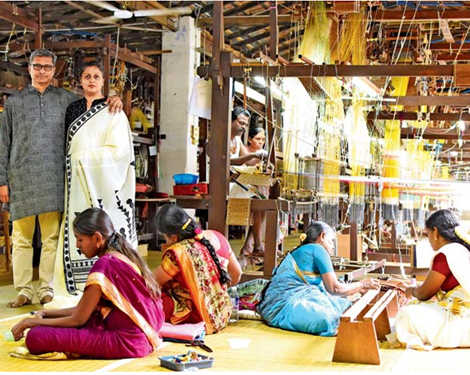
Co-founders Mani Chinnaswamy and Vijayalakshmi Nachiar at their studio in Pollachi, Tamil Nadu
If you're keen to on spotting scriptures etched on granite walls of ancient temples in Tamil Nadu in Mumbai, head to Chhatrapati Shivaji Maharaj Vastu Sangrahalaya (CSMVS) on Friday. No, they are not being flown down as artefacts, but appear on handwoven cotton sarees that make their way from Ethicus studio, a sustainable farm-to-fashion initiative based in Pollachi, near Coimbatore, as part of a two-day exhibit.
"We compressed, overlapped and layered the Tamil script to form a texture, which was used in the weaving of the saris," shares 42-year-old Vijayalakshmi Nachiar, who launched Ethicus with her husband, Mani Chinnaswamy in 2009, with the aim to revive local hand-weaving traditions. The duo works with local artisans, who use traditional, handloom-weaving techniques. The price tag of each product also includes a photograph of the weaver who has made it.
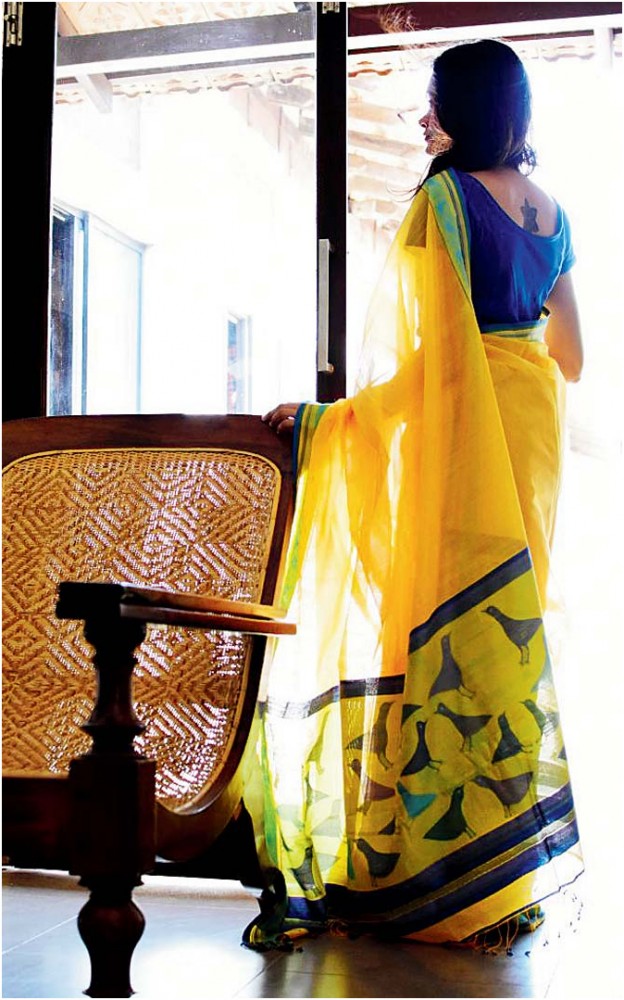
Bird motifs inspired by Gond wall art on a pallu
The exhibition features 200 saris from the label’s latest collections — Ballad of Blossoms, Gond: A Textural Saga and Vilay: A Fusion Drama. Each piece is priced between Rs 4,000 and Rs 35,000. Offering a whiff of English summers, the Ballad Of Blossoms is a floral collection featuring a combination of flowers like rose, iris, begonia, poppy, daffodil and water lily. "We have incorporated a combination of their leaves and other elements of a garden like the picket fence, gravel, water and garden equipment into the design. To Indianise the theme, we have used Tamil script texture," explains Nachiar.
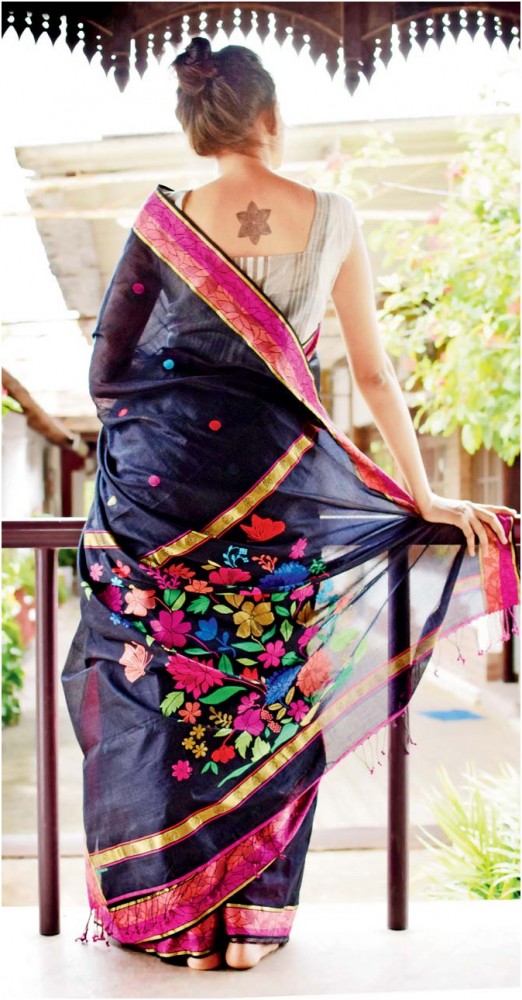
A sari with floral motifs from the Ballad of Blossoms collection
The Gond collection is inspired by the wall art of the tribe belonging to parts of Madhya Pradesh and Maharashtra. The motifs include flora and fauna, as well as figurines engaged in chores representative of their tribal life and culture. Meanwhile, Vilay is a fusion of traditional and modern layouts interplayed with geometrical motifs. Stoles and throws are also part of the collection.
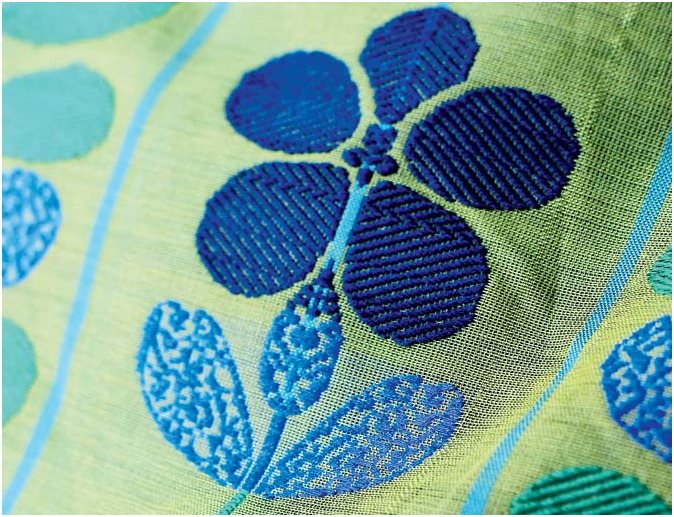
Compressed Tamil script used as a texture in a leaf motif
The cotton for the saris has been sourced from Appachi Ecologic Cotton, a company that has been involved in the contract farming of ecological cotton from Kabini in Karnataka since 2005. It works with over 800 farmers covering around 2,000 acres of land to grow very fine and extra long staple cotton. "We use this cotton in all our products. Handloom weaving in a tedious process. For instance, before we even begin weaving, artisans load the yarn on the loom and hand-knot each thread to create the sari patterns. There are about 2,400 threads and this process, itself takes about three days," she sums up.


















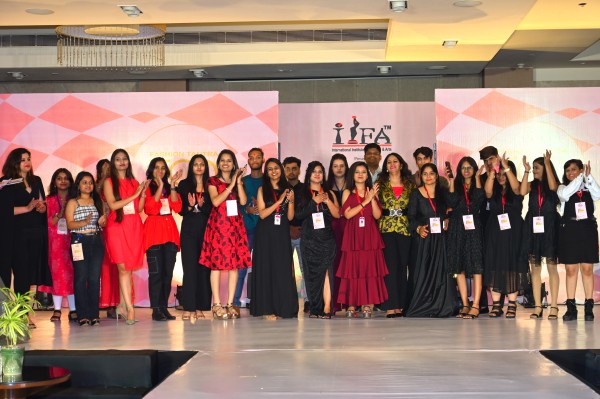
Your Message